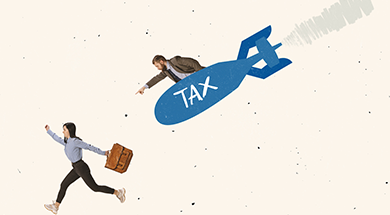Changes to tax legislation mean that travel to and from residential rental properties no longer apply; an amendment which came into effect on 1 July 2017.
As it's been commonplace for owners to claim for this type of expenditure, it will now need to be of consideration for investors lodging tax returns for 2017/2018 to ensure that figures are calculated correctly.
What does this mean for owners and how will they be impacted?
Specifically, if you travelled to or from rental property to obtain rent, inspecting the premises, carrying out any maintenance or upkeep, or any other purpose relating to the property, you cannot claim on these expenses. It is essential to be mindful of this as you go about your activities, to ensure that only necessary travel is made to investment properties to avoid costs that are no longer tax deductible.
According to the ATO, residential property is defined as land or a building that is being utilised as someone's place of residence or let out as residential accommodation. If the property is not currently lived in however is intended to be occupied or can be used for this purpose, travel is also exempt and cannot be used to lower the amount of tax paid.
Unfortunately, this may be bad news for your typical mum and dad investors, who could be relying upon these kinds of deductions. With around 1.3 million of 2 million of Australia's property landlords negatively geared, and a significant proportion of owners on incomes of $80,000 or less, it's not just the rich that are going to feel the pinch, but anyone who owns a residential rental property in Australia.
Who does this amendment not apply to and why?
There is good news for some, as a select group of investors can continue to deduct travel expenses, which includes those who have a rental property business. However, if you own one or even a bunch of rental properties, it's unlikely that you'll fit into the category of those who have escaped the ruling. Additionally, there's a handful of owners within an excluded class of entity.
When you look at the bigger picture, statistics reveal that investment property ownership is not as typical as you'd imagine. About 7.9% of Australian's are one of these investors, and within this group, over two thirds or around 72.8% own one property. Those who own three properties account for a mere 5.5% of all property investors, with only 0.8% possessing five properties. That means that almost all owners of residential properties will be affected by the change in tax legislation. As previously imposed, travel expenditure can't be used for calculating the capital gain or capital loss when selling a property, which remains unchanged.
Conclusion
Changes to tax expenditure as it relates to residential investment properties have long been on the Government's agenda, and recent amendments mean that travel to and from residential investment property is no longer tax deductible. Regardless of how necessary the activity is to the successful operation of the property as a rental, the expenses are considered as an investment, as opposed to an expense and must be ignored come tax time. This affects many property owners in Australia, most of which only own one property, with a tiny percentage owning multiple investment properties.
About Murray Nankivell
At Murray Nankivell Accountants, we're focused on advising farmers, truck drivers, and rural Australian businesses so they can succeed financially and in all areas of their life and business. If you, a friend or loved one would like additional advice about tax deductions for your residential rental property, please contact us at Murray Nankivell on mb@murraynankivell.com.au or by phoning us on (08) 8535 5999 .

Author – Tracy Baxendine

LEGAL
Liability limited by a scheme approved under Professional Standards Legislation.
Investngro Pty Ltd ABN 53 113 102 695 trading as Murray Nankivell Financial Planning, is an authorised representative of Count Financial Limited ABN 19 001 974 625 holder of Australian financial services licence number 227232 (“Count”). Count is owned by Count Limited ABN 111 26 990 832 of GPO Box 1453, Sydney NSW 2001. Count Limited is listed on the Australian Stock Exchange. Any taxation and accounting services are provided by Murray Nankivell and are not within the authority Count. The information on this web site is not financial product advice and is provided for information only.







